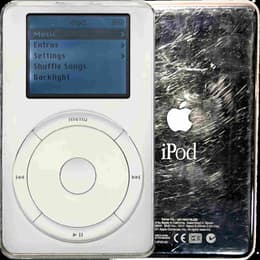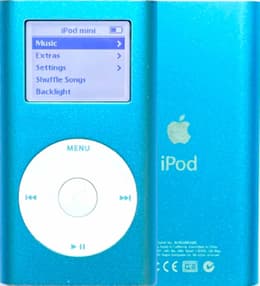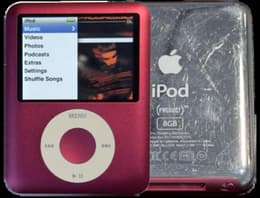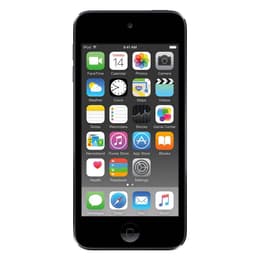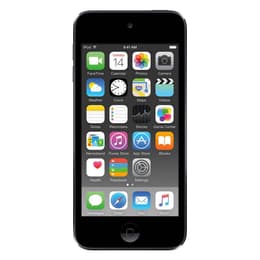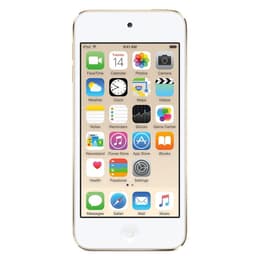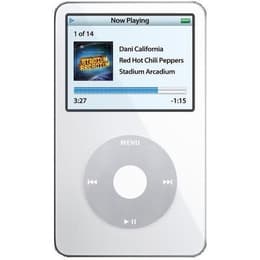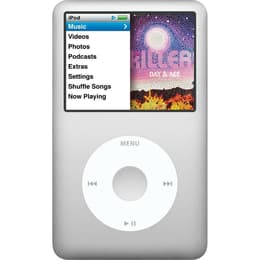At Back Market, sales of refurbished iPods have risen each year since 2022. Find out why it remains one of the best-selling devices of all time.
“Right now, people are completely overwhelmed by technology,” reckons Leander Kahney, a tech journalist and the author behind the 2005 book, Cult of iPod. “It means there’s a hunger for simple, functional devices like the iPod that just work, and work every time.”
His comments reflect the fact that despite Apple discontinuing production of its iconic MP3 player a couple of years back, consumers are still drawn to the device due to its simplicity in providing a library of music that you don’t need an internet connection to access. “An old iPod is great for the car or the gym, while it works offline and it’s 100% reliable,” Kahney adds. “You just can’t rely on modern services, especially with spotty cell signals or laggy WiFi.”
These positives are reflected by Back Market data. Total sales of refurbished iPods have risen an average of 15.6% per year since 2022, and global consumers (particularly in Spain, Germany, and the US, where these devices sell in the most impressive numbers) are clearly still compelled to own one. In fact, Christmas seems to be the period where iPods are ordered on Back Market the most, with Q4 sales up 117% compared to the rest of the year.
Apple Music Event 2001
The first-ever iPodThe first iPod was launched by Apple way back in 2001. The device clocked up 450 million global sales [as of 2022] and resulted in various iterations like the Shuffle, Nano, Classic, and Touch. It’s difficult to articulate just how exciting they were to use initially in the 2000s, with scrolling through your favorite albums via that satisfying click of the iPod’s control wheel and having access to a device that didn’t skip through a song if your commuter bus drove over a pothole, both huge positives.
Yet as far more powerful smartphones gained mainstream acceptance in the 2010s, the need to own an iPod greatly diminished, and this device started to feel more and more like a sacrificial precursor to the iPhone. However, due to the iPod having such a vast global user base, Kahney says there’s been enough passionate fans to keep it alive and kicking.
“I think a lot of the iPod owners are too heavily invested to quit,” he explains. “They’ve already spent a lot of time downloading, organizing and optimizing their digital music libraries. It’s all loaded on their iPod. It plays the music they like and it’s super easy to sync with any new tunes. The interface really couldn’t be easier.”
In 2024 there’s also a plethora of businesses that specialize in updating dusty old iPods, therefore boosting online visibility. Kahney credits this modding community with fueling an iPod’ revival: “The modders are definitely keeping the iPod alive, especially the companies that revive dead drives and batteries. Apple no longer services them, so it falls on these small companies to keep the devices going.”
One such business is Elite Obsolete Electronics. It sells refurbished iPods (that are bolstered by upgraded battery life, screen power, and memory) as well as niche secondhand parts, so people can repair or improve their old devices. “We do about 70 orders per day,” reveals Elite Obsolete owner Austin Lucas. “Maybe 70% of those are people buying individual replacement parts and the other 30% are there to buy refurbished iPods. Each year our sales seem to go up and up.”
Speculating on what is driving overall demand, Lucas credits an exasperation with the current streaming era, particularly from millennials and Gen Zers. “There’s a chunk of people who are tired of paying $10 a month to listen to music they don’t even own and are angry at paying a license fee to, well, essentially borrow songs. They want to take back control and have a musical library that’s truly their own.”
And, unlike so many modern devices, Lucas believes the fact the iPod prioritized sound quality in its original design remains a big reason why it’s still so popular today. “The iPod was designed from day one to be an audio player,” he adds. “The components inside of it are premium audio sets and a lot of the modern devices just don’t offer anything near the same fidelity in their sound quality. It means people who truly love music still love the iPod.”
Kahney agrees: “Some of the 2nd-gen iPods are highly prized because they contain superb digital-to-analog converters — some of the best DACs ever put in consumer electronics. I think there’s still someone out there who takes these iPods and adds better, gold-plated output jacks. Audiophiles love iPods, period.”
"The iPod transformed Apple from a struggling niche computer maker into a consumer electronics powerhouse. It’s one of the best-selling gadgets of all time."
Some have speculated whether Apple might be tempted to bring the iPod back as a device with limited new drops. However, both Kahney and Lucas think this is extremely unlikely, with these experts both stating the iPod has rather evolved into software and that its modern iteration is essentially Apple Music.
But even if this is the case, the secondhand market means the iPod’s life cycle is far from over, as nostalgic consumers look to log out of Spotify and own something more tangible. “The iPod will go down in history as one of the greatest electronic devices ever,” Kahney, who is now the editor of the Apple news website Cult of Mac, concludes.
“The iPod transformed Apple from a struggling niche computer maker into a consumer electronics powerhouse. It’s one of the best-selling gadgets of all time. It set design trends, and made white gadgets and earbuds trendy.”
Asked one final time why we just can’t let the iPod die, he answers more simply: “It’s a super device and still very functional. It just works so great, so why would we ever quit or give up on it?” The iPod’s iconic wheel, it seems, has a lot more clicking left to do.

